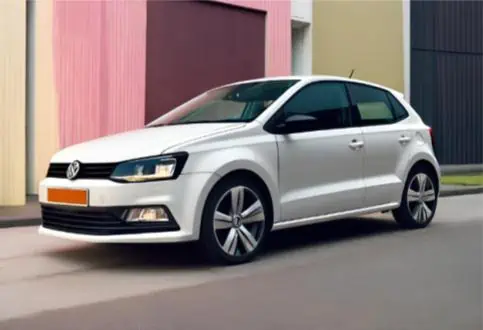In the ever-evolving landscape of the automotive industry, one of the industry’s stalwarts, the Volkswagen Polo, finds itself at a crossroads. As emissions regulations tighten their grip and the allure of electric vehicles (EVs) continues to grow, Volkswagen is contemplating the future of its beloved Polo model in Europe.
VW is now faced with a critical decision
The VW Polo has been a fixture on European roads since 1975, serving as a popular choice for those seeking a compact and reliable vehicle. However, the winds of change are blowing, and VW is now faced with a critical decision – whether to reinvent the Polo, extend its life, or bid it farewell altogether.
The driving force behind this decision lies in the shifting automotive landscape. The rising costs associated with manufacturing traditional petrol-engine cars, exacerbated by stringent emissions regulations and safety requirements, have made it increasingly challenging for automakers to turn a profit on smaller vehicles like the Polo. With the global automotive industry increasingly transitioning towards EVs, VW, like many other manufacturers, is reevaluating its approach.
Ban the sale of new petrol and diesel cars by 2030
Europe, in particular, is witnessing a significant shift in the automotive paradigm. Many European countries have announced plans to ban the sale of new petrol and diesel cars by 2030. In response, automakers are rethinking their strategies and product lineups. This uncertainty regarding the future demand for petrol models has left car manufacturers in a quandary. Should they invest in new iterations of traditional models, or should they pivot towards EVs exclusively?
The VW Polo, renowned for its compact size and affordability, is not the only casualty of this industry transformation. Earlier this year, Ford ceased production of the Fiesta in Europe, signalling a broader trend. As manufacturers grapple with the challenge of producing small cars profitably, they are forced to confront the realities of a changing market.
In addition to these challenges, Euro 7 engine regulations, set to take effect later this decade in Europe, will impose even stricter emission standards, further driving up production costs for petrol-engine cars. These regulations may well be the final straw for the Polo’s future in Europe.
New Entry level EV
However, amidst this uncertainty, there is a glimmer of hope for VW and small car enthusiasts. The recent unveiling of the Volkswagen ID 2 concept, an all-electric model drawing design inspiration from the classic Polo and Golf, hints at a potential new direction. This entry-level EV is slated for release in 2026, offering a glimpse into VW’s strategy for a net-zero future.
In conclusion, the VW Polo’s future hangs in the balance, reflecting the broader challenges faced by automakers in the evolving automotive landscape. As the industry navigates the shift towards electrification and grapples with stringent emissions regulations, decisions about the fate of beloved models like the Polo are far from straightforward. The automotive world watches with bated breath to see which path VW will choose – a path that may well shape the future of the small car segment.
